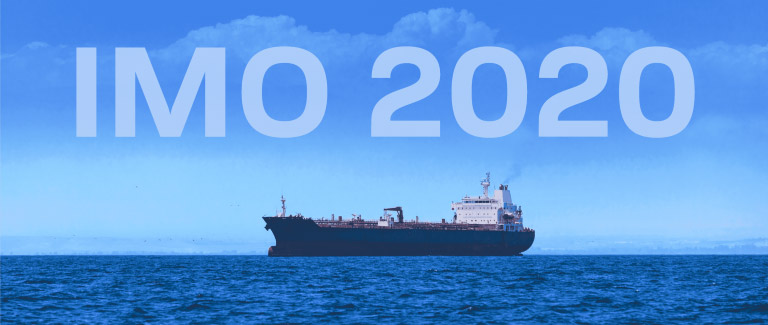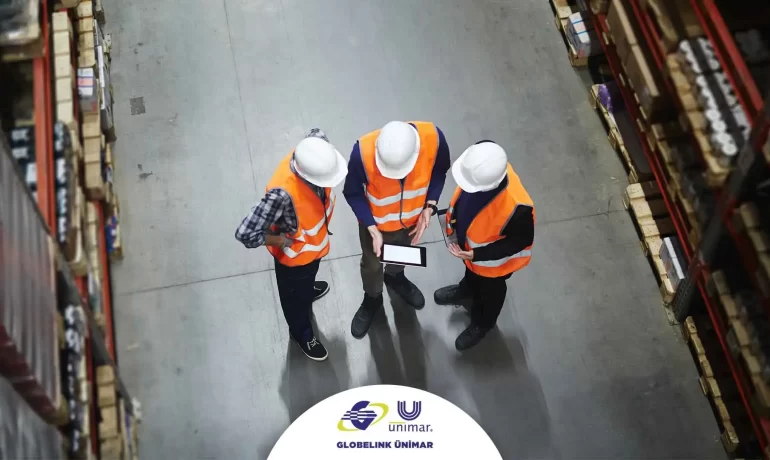
Sulphur emission, the “historical regulation” of the International Maritime Organization, was put into effect as of January 1, 2020. However, the industry has still been facing obscurities.
International Maritime Organization’s (IMO) Regulation on Low Sulphur, which has been introduced to reduce emissions in international waters on 1 January 2020, has become a turning point for the maritime industry and maritime transport. As of this year, the maritime industry will have to reduce sulphur emissions by more than 80 percent within the scope of the decision that has started to yield extensive results for shipping prices, operating costs, global freight rates, shipping and oil economy, scrubber demand, scrap, and more.
IMO regulations which aimed at reducing sulphur oxides (SOx) emissions from ships first came into force in 2005 with the MARPOL Convention (Annex VI Prevention of Air Pollution from Ships). Since then, the limits on sulphur oxides have gradually become strict. However, the new arrangement, which was put into practice at the beginning of the year, is the most strict of all those that have ever been implemented.
The basis of the new emission standards is to significantly reduce the pollution produced by the World maritime. Undoubtedly, the most lucrative part of this decision will be nature and humanity in both the short and long term.
The sanction of the new regulation is to reduce the upper limit of sulphur in ship fuels from 3.5 percent to 0.5 percent. Currently, the share of maritime transport in global emissions is around 3-4 percent. IMO Marine Environment Protection Committee aims to reduce greenhouse gas emissions from ships by 50 percent by 2050, by 40 percent by 2030 and by 80 percent by 2050. In the long run, emissions will be thoroughly eliminated.
However, maritime transport, which carries out 90 percent of the world trade, will have to incur an excessive cost in the short term. With the new sulphur rules, fuel costs will increase by approximately 25 percent (about $ 24 billion) in 2020. The issue beyond this is that according to research, although the new period has started, the industry is unprepared yet and not sure about what to do exactly.
The Full Compliance With the New Regulation Will Take a Few Years
This rule, which will be implemented, concerns 55.000 ships operating in international trade. Ship operators will have to use alternative fuels with low sulphur starting from this date. As of today, the industry’s daily fuel use is around 3.8 million barrels and it is responsible for half of the global fuel demand. Therefore, IMO’s sulphur regulations are expected to create difficulties in terms of adaptive fuel pricing and availability in the short term. Freight costs will increase as the maritime industry uses more expensive fuels which yield excessive results in terms of the global economy. This effect has become noticeable since mid-2019, and the full compliance of the refining and transport industries with the issue will take a few years.
After 2020, the demand for low sulphur HFO or marine gas oil (Marine Gas Oil-MGO) will increase, rather than heavy fuel oil. The short-term solution is to convert ship fuel systems to LNG fuels. Currently, 125 vessels are working with LNG and 136 vessels are under construction or have been ordered.
Today, 80 percent of the consumed bunker products are fuel oil and 20 percent are gas oil. The pointer is expected to reverse after 2020. With the introduction of the new emission audits, it is expected that 70 percent of the bunker products to be used will be gasoil (distillates), 20 percent will be fuel oil and 10 percent will be LNG.
Ship operators need to use more expensive fuels for low sulphur fuel. The ton of the high sulphur fuel used currently varies between 310 and 380 dollars according to the port while the ton of MGO varies between 480 and 670 dollars.
Refineries state that they can produce an alternative fuel at the rate of the industry needs in the second half and the third half of the year. However, ship operators are not sure about whether an adequate amount of fuel will be available at all ports around the world by the specified date.
Is the Maritime Industry Ready for the New Process?
Since IMO announced that the rate of maximum sulphur in marine fuels has to decrease as of this year, the maritime industry has been working to comply with the rule without increasing costs for global trade.
Some shipowners continue to use high sulphur fuels by installing exhaust cleaning systems. Another group prefers to switch to low sulphur fuel. The industry believes that both cases will increase freight rates. Another view is that the rules imposed on Sulphur Regulation and Ballast water treatment systems, which is another implementation of IMO this year, will create supply shortages. The industry is concerned about whether there is enough oil to meet low sulphur fuel demand.
It is estimated that only 3-5 percent of 55.000 vessels in overseas trade has installed the scrubber system. Research shows that shipowners prefer low sulphur fuel, instead of the scrubber. Because the cost of scrubber varies between 2 and 6 million dollars depending on the size and type of the vessel. On the other hand, there is obscurity about the demand for high sulphur fuel. This means that different types of raw materials can also be exchanged to produce low sulphur fuel, as well as different fuel qualities. The leading investment companies in the industry say that ship owners’ choice for scrubber or low sulphur fuel use is critical and that investing in low sulphur fuel refineries will be an advantage in the future.
One of the most common issues about IMO 2020 regulations is that fuel and investment costs will move freight prices upwards. Experts of the industry expect a 20-percent increase in freight prices in the first place. Contrary to the general attitude of the industry “let’s wait and see”, container shipowners have preferred the method of increasing the freight prices directly.
It is thought that the leading regions and countries in the maritime industry such as the USA and Europe will adapt to the regulation until the middle of the year since they have started their preparations for 2020 much earlier and that ship owners and operators in other countries could not draw a road map yet and that there are many question marks in their minds.
Also, global market conditions have limited the moves of shipowners and operators. The decision not to employ Tier1 in the cabotage zone in China, the fact that Indonesia and India could not reach the expected acceleration, the cold war between America and China, the economic crisis in Europe, and raw material and production problems are putting pressure on the markets. For this reason, many companies are unable to allocate funds or take steps for the purchase of a second vessel. It is thought that especially developing countries will create a big commercial waste at this point.
It Will Cost Over 50 Billion Dollars to the Industry
In a report published last year, OECD International Transport Forum calls on countries to take an active role in this issue, stressing that if all technologies are applied, carbon emissions can be reduced by 82 to 95 percent by 2035: “Government policies can make zero-carbon watercraft more attractive and direct investments towards sustainable technology and fuels. Thus, the maritime transport industry can become more sustainable, and it may be a source of green development and green employment in developing economies such as Turkey.”
It is estimated that the new environmental codes determined for marine fuels will bring an extra cost of over $ 50 billion to maritime transport.
Artificial Intelligence is Both Changing and Transforming
Today, we can see the clues that we will
The Future of the Cargo Market is Shaped by e-commerce
The e-commerce industry has been growing rapidly since the



